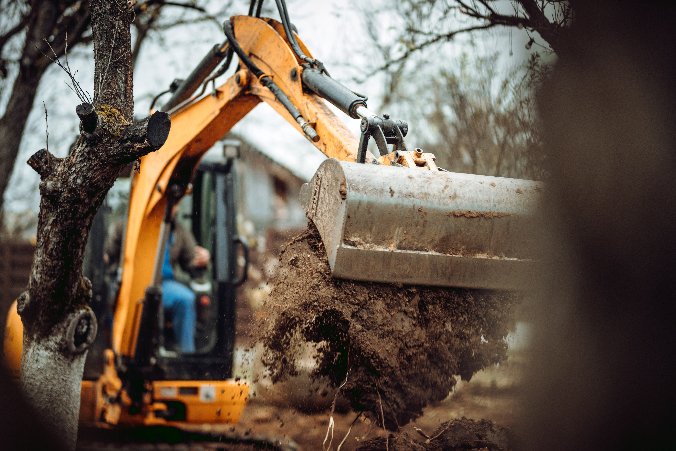Digging Out a Basement? 6 Keys to Doing the Job Right
Digging out a basement can be a big project. But with the right tools and a good plan, it's definitely manageable. Before you start, though, you'll need to do some research to ensure that you are properly equipped and prepared for the task at hand. In this post, we'll go over five keys to digging out a basement correctly. Let's get started!
Determine the Right Layout
Before you start digging, it's essential to understand your basement's layout. You'll need to plan for any necessary changes, such as rearranging pipes and ducts. Make sure to take measurements accurately, including ceiling height. This planning phase will ensure that your project runs smoothly and efficiently.
When planning for your basement layout, it's important to consider what you want to use the space for. Are you looking to create a home gym, a spare bedroom, or a family room? Determining the purpose of your basement will help guide your layout decisions. For example, if you plan on using the space as a home gym, you may want to have more open space for equipment, while a spare bedroom may require more walls and storage. Take the time to think about your needs and wants for the basement to create a layout that best suits your vision.
Check for Water
Before you start digging, you'll also want to check for water around your foundation. If there is water, you'll want to install a sump pump, waterproof your walls, or find another solution to protect your basement from water damage.
Water can cause a variety of problems in your basement if not properly addressed. It can lead to mold and mildew growth, which can be harmful to your health and damage any furniture or belongings stored in the space. Water can also weaken the foundation of your home, leading to structural issues and potentially costly repairs. Before you start digging out your basement, make sure to address any water issues to prevent these problems from occurring.
Get the Right Equipment
Digging out a basement requires several specialized tools such as an excavator, a dump truck, and concrete saws. You'll also need hand tools, safety equipment, and a permit if required in your city. Before starting, make sure you have all necessary equipment to complete the project.
You can find the necessary equipment for digging out a basement at your local hardware store or by renting from a construction equipment rental company. Make sure to do your research and compare prices to find the best option for your needs and budget. It's also essential to ensure that all equipment is in good working condition before starting the project, as any malfunctions or breakdowns can significantly delay progress and increase costs.
Manage Debris
Once removed, the excavated soil, rocks, and other debris must be handled correctly. You'll need to haul off the waste and dispose of it properly. This step alone can make digging out a basement a daunting task, so be sure to keep it in mind before you start.
Depending on the size and scope of your project, you may need to rent a roll-off dumpster or hire a professional hauling company to remove the debris. Make sure to research local regulations for disposing of construction waste to ensure you are following proper procedures. It's also important to consider any additional costs associated with debris removal when budgeting for your basement digging project.
Think About Access
You'll also need to consider how to get materials in and out of your basement. If it's an add-on, larger equipment may not fit around your house to enter your basement. You'll need to plan to transport these items through your house. It may be necessary to schedule a door or wall removal to accommodate large pieces of machinery.
If you don't plan ahead for your basement digging project, you may face numerous issues and delays. Without proper planning, you may not have the necessary equipment or permits, resulting in a halt to your project. You could also encounter unexpected obstacles, like structural issues, that require additional time and resources to address. It's crucial to take the time to carefully plan and research before starting any digging project to avoid these potential roadblocks. By doing so, you can save yourself time, money, and unnecessary stress in the long run.
When in Doubt, Call in the Pros
There are some jobs that are best left to the professionals, and digging out a basement may be one of them. If you are unsure of your ability to complete the project safely and correctly or if it seems overwhelming, don't hesitate to call in professional contractors, such as one at Kee Constructionn. They have the experience, knowledge, and equipment to get the job done right while avoiding any potential issues or complications. While it may be an added expense, hiring professionals can save you time, stress, and potential costly mistakes.
Digging out your basement should not be considered a DIY project without proper research and planning. In this post, we've listed the five most vital keys to digging out a basement correctly, including layout, water checks, equipment requirements, managing debris, and accessibility. You can use this guide as a starting point for your project and keep in mind that safety must always come first. Contact professional excavation services if you feel unsure about your capabilities, or face unforeseen issues. Following all of these tips can ensure a successful basement digging with minimal stress and delays.


